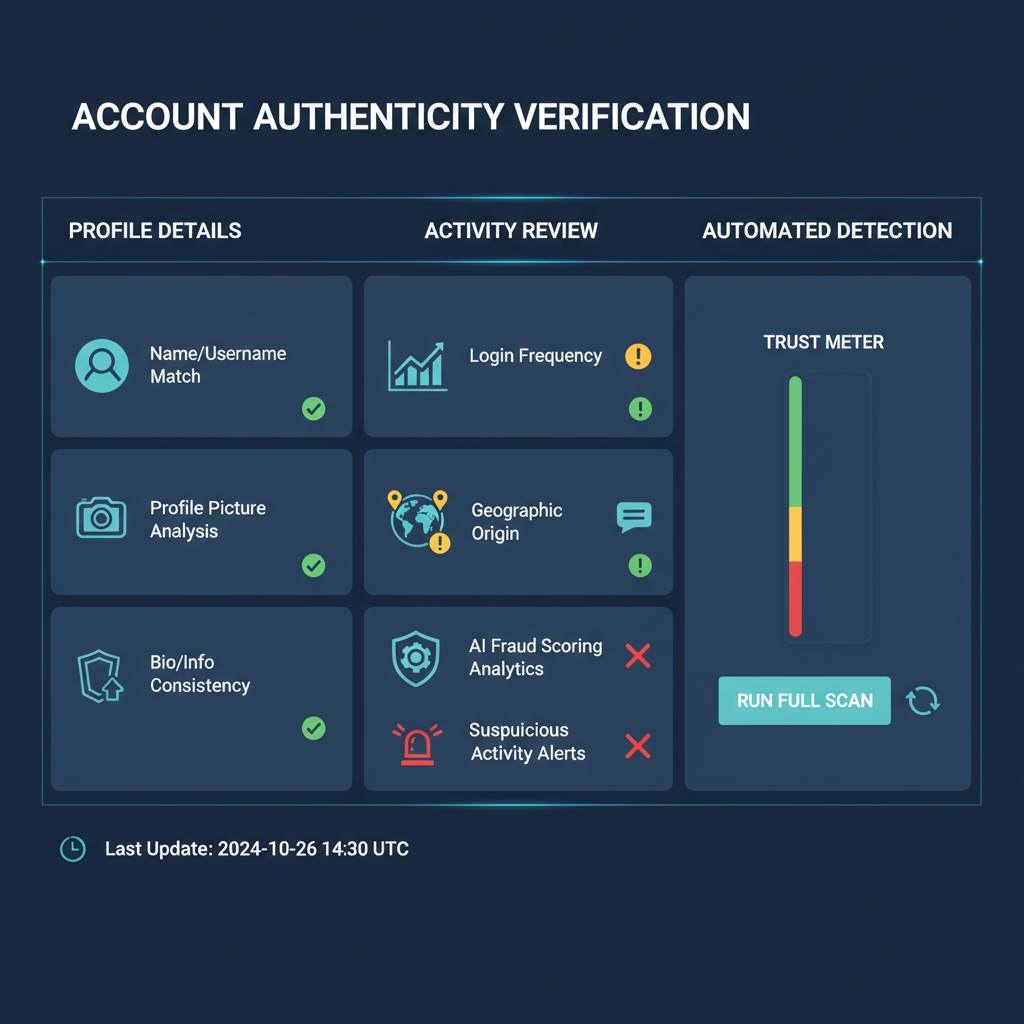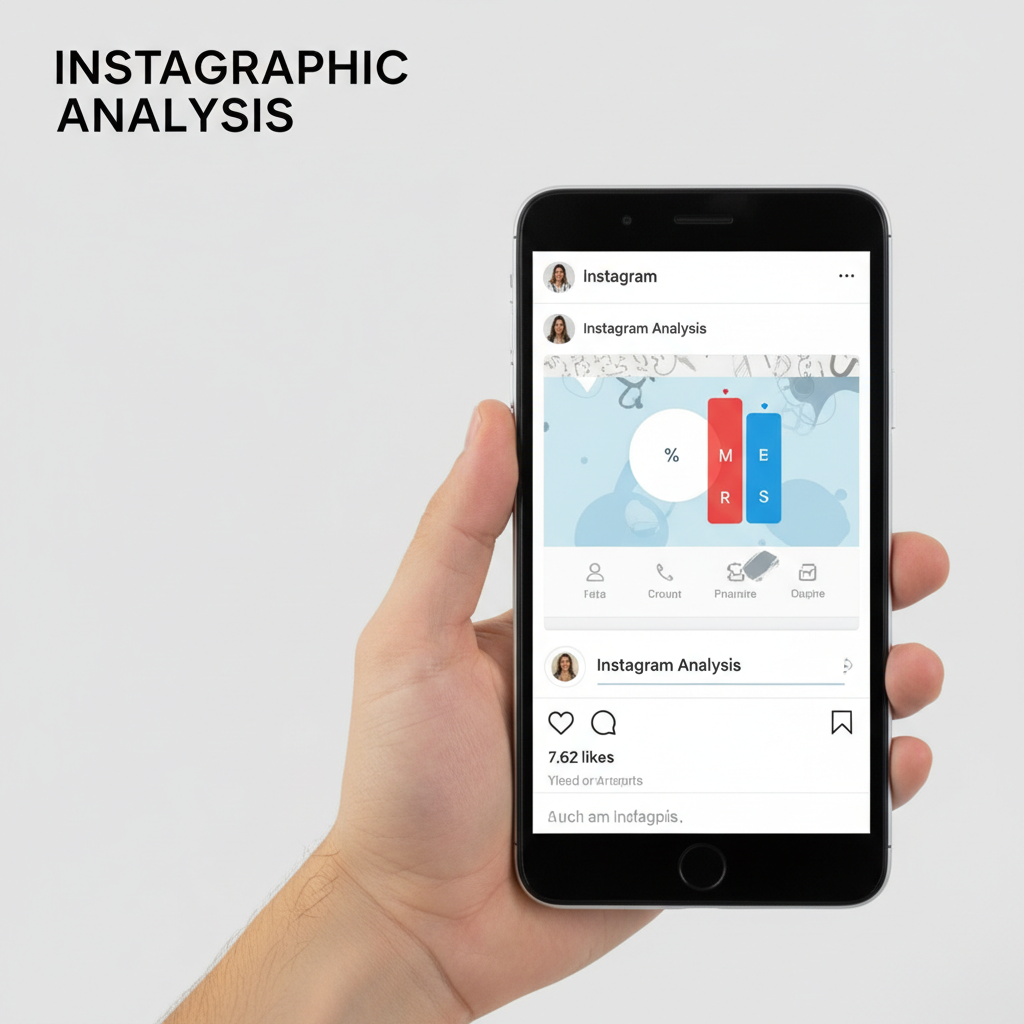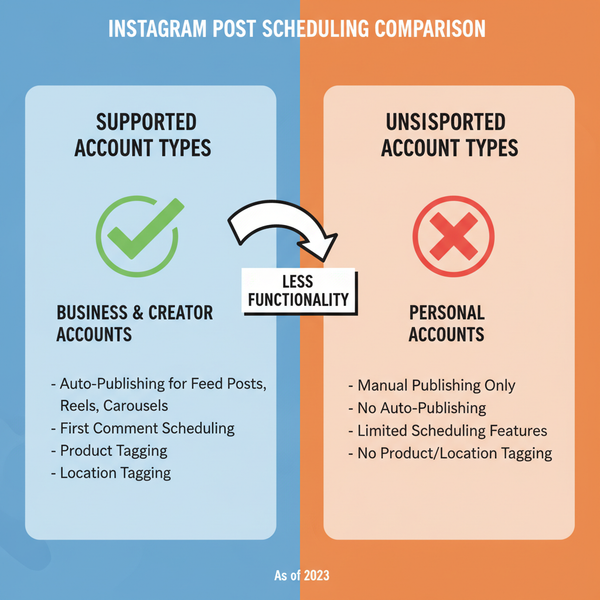Identifying and Avoiding Instagram Fake Account Names
Learn how to identify suspicious Instagram usernames, spot patterns in fake accounts, and protect yourself from scams and automated bots.

Identifying and Avoiding Instagram Fake Account Names
Instagram remains one of the most widely used social platforms, but with its reach comes the persistent challenge of fake accounts. These impostors can be created for spam, scams, harassment, or even data collection — and they often betray their nature through their usernames. Learning how to identify Instagram fake account names is a key step to safeguarding your online experience, maintaining authentic engagement, and protecting your network.

---
What is a Fake Instagram Account Name?
A fake Instagram account name is a username crafted to hide the true identity of its creator, mimic someone else’s account, or enable automated bot activity. They often deviate sharply from natural naming conventions.
Common characteristics include:
- Anonymity: No obvious link to a genuine person’s name or profile.
- Deception: Near-identical names designed to impersonate legitimate users.
- Automation-friendly: Short, random character sets ideal for large-scale generation.
---
Common Patterns in Fake Account Names
Patterns in Instagram fake account names tend to follow predictable styles, making them easier to spot if you know what to look for:
- Misspellings of Popular Names
- Swapping characters (`o` → `0`, `l` → `1`) to imitate existing usernames.
- Random Digits or Letters
- Adding long numeric sequences or arbitrary letters:
- `johnsmith238974` or `anna_xsz09`.
- Excessive Underscores or Periods
- Extra underscores/dots obscure searches:
- `__cool_girl__` or `marc...james`.
- Overuse of Unusual Characters
- Including hyphens, emojis, or other symbols frequently seen in automated names.

---
Signs of Bot-Generated vs Human-Created Usernames
Understanding whether a suspicious username is bot-generated or maliciously human-made helps tailor your response.
| Bot-Generated | Human-Created |
|---|---|
| Random alphanumeric strings (e.g., lx03p9_q) | Simple misspellings of a real name (e.g., jonh.smith) |
| No consistent capitalization | Capitalization aligns with typical name formatting |
| Identical patterns appearing in batches | Imitates famous or known friend accounts |
| No linguistic meaning | Partially recognizable identity elements |
---
Why Scammers Use Certain Name Formats
Scammers choose specific name styles for both technical and psychological impact:
- Avoid Detection: Randomized character combinations evade filters spotting known spam names.
- Impersonation: Misspellings fool users into thinking it’s a genuine profile.
- Mass Production: Name generators create thousands of accounts effortlessly.
- Clicks & Curiosity: Odd usernames provoke profile visits.
They often combine awkward usernames with trust-inducing visuals, such as a first name paired with an attractive profile photo.
---
Examples of Suspicious vs Real Usernames
| Suspicious | Real |
|---|---|
| mari__a.l_ov3 | maria.love |
| johnsmith88291 | john.smith |
| anna_xsz09 | anna.jones |
| x_peterl89_q | peter.lam |
---
Checking Authenticity via Profile Details and Activity
Username analysis works best alongside profile review. Look for:
- Profile Picture: Reverse search to identify stolen or stock images.
- Bio Text: Empty or generic bios may signal a fake.
- Follower-Following Ratio: Many follows but few followers is suspect.
- Post History: Sparse, poor-quality, or irrelevant content is a warning.
- Engagement Quality: Repetitive comments such as “Nice pic!” across accounts.
---
Tools and Methods for Spotting Fake Accounts Quickly
Key detection aids include:
- Reverse Image Search: Google Images, TinEye.
- Username Lookup Tools: Find duplicates across social networks.
- Third-Party Instagram Audits: Identify fake followers.
- Pattern Recognition Training: Build awareness for recurring suspicious formats.
Maintaining a community block list reduces repeated exposure.

---
Reporting Fake Accounts and Blocking Them
When you find an Instagram fake account name, act quickly:
- Report the Profile using Instagram’s built-in menu.
- Block the Account to stop communication.
- Notify Friends or Followers of potential impersonation.
How to report:
1. Go to the fake profile.
2. Tap the three-dot menu (top right).
3. Select "Report".
4. Follow on-screen prompts (choose "Pretending to be someone else" if applicable).---
Impacts of Fake Accounts on Engagement and Safety
Risks posed include:
- Lower Authentic Engagement: Inaccurate analytics harm growth strategies.
- Exposure to Spam/Scams: Increased risk of phishing.
- Damaged Reputation: Too many fake followers diminish credibility.
- Personal Safety Threats: Used for stalking or harassment.
---
Preventative Measures to Avoid Interacting with Fake Names
Safeguard your activities by:
- Screening Follower Requests carefully.
- Using Private Account Settings for control over exposure.
- Routine Follower Clean-Ups with management tools.
- Raising Community Awareness for spotting fakes.
- Enabling Two-Factor Authentication to stop account cloning.
---
Best Practices for Maintaining a Safe Instagram Network
Follow this checklist:
- Identify Patterns in Instagram fake account names.
- Investigate Profile Elements before engaging.
- Utilize Detection Tools effectively.
- Report/Block Quickly upon suspicion.
- Educate Your Audience regularly.
- Adjust Privacy Settings to limit unwanted contact.
Proactive strategies keep your community genuine, your insights accurate, and your safety intact.
---
Summary
Recognizing Instagram fake account names is a foundational skill for keeping your social presence secure and trustworthy. By blending username pattern spotting with profile review, using detection tools, and promptly reporting or blocking impostors, you protect yourself and your network from scams, spam, and harassment. Stay vigilant, share this knowledge with your community, and encourage others to report suspicious activity — together, you can foster a safer Instagram environment.




